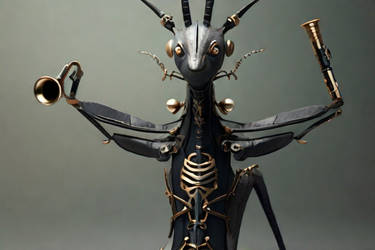ShopDreamUp AI ArtDreamUp
Website live, Goodbyes
It's been a fun ride, folks! But I won't be on DeviantArt anymore. I think I've said that once or twice before, but I need to focus on my professional work and family now. My wife and I are expecting our first child in a few months. I'm graduated from SCAD with my MFA, and looking for a teaching job somewhere. It could be a year or two before I land something permanent.
Thank you to the community of friends and acquaintances that has supported me for these years. I appreciate your comments and input. I also appreciate the debates and discussions I've had with people here, whether friendly or not-so. They have kept me thoughtfully engaged and
Triptych outcome
:thumb208143618:
Well, the six month journey for this triptych that began with my thesis has come to an end. The outcome supported my thesis, but it was still very disappointing that I didn't get the commission. You can find more details at my blog: Mayer Illustration.
A Lenten Hymn
1. Christ, the Life of all the living,
Christ, the Death of death, our foe,
Who, Thyself for me once giving
To the darkest depths of woe,--
Through thy sufferings, death, and merit
I eternal life inherit:
Thousand, thousand thanks shall be,
Dearest Jesus, unto Thee.
2. Thou, ah! Thou, hast taken on Thee
Bonds and stripes, a cruel rod;
Pain and scorn were heaped upon Thee,
O Thou sinless Son of God!
Thus didst Thou my soul deliver
From the bonds of sin forever.
Thousand, thousand thanks shall be,
Dearest Jesus, unt
Why are not all saved?
It is perhaps the most puzzling question that may ever be asked of a Christian: "Why aren't all people saved?" There is, of course, the standard theological answer regarding free will—that because God loves us, he gives us the right to reject his love—but that doesn't seem to satisfy the critics. And this shouldn't bother the Christian apologist. But there are also many Christians who struggle to provide an answer to this question, and as a result, their faith may be weakened. I suggest that this is because the standard theological answer is incomplete.
My wife and I bought a book about Christian marriage before we were married, an
© 2010 - 2024 Elandain
Comments46
Join the community to add your comment. Already a deviant? Log In
I read "To Change the World" by James Davidson Hunter last fall. Very much along these lines, but he says it in many more words. I can be a bit cynical, so it helps me to hear a high volume of anecdotal evidence and a comparison of mainstream views/attitudes. I think you might enjoy it, particularly any points of discord you come across.
Thank you for sharing your insight and providing a bit of a forum.
Thank you for sharing your insight and providing a bit of a forum.
